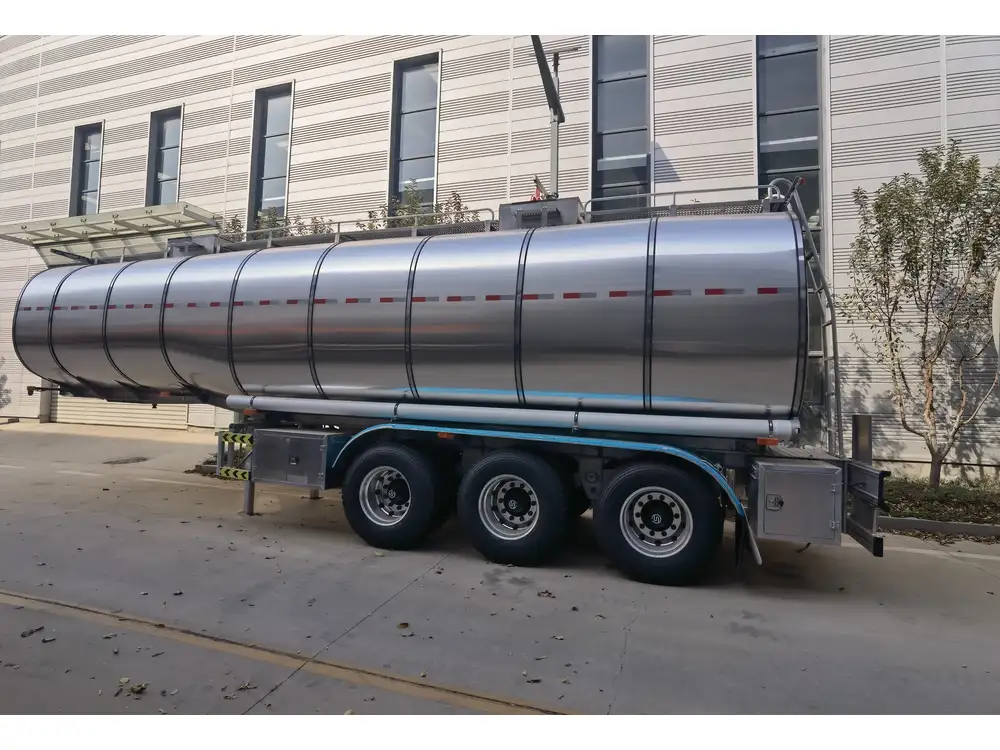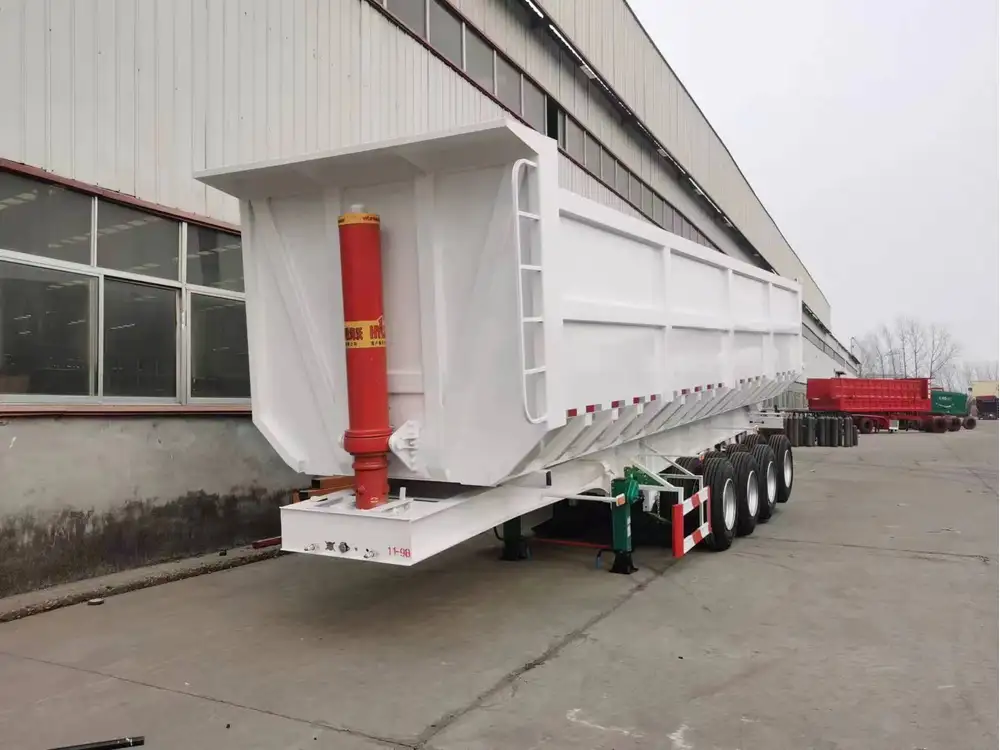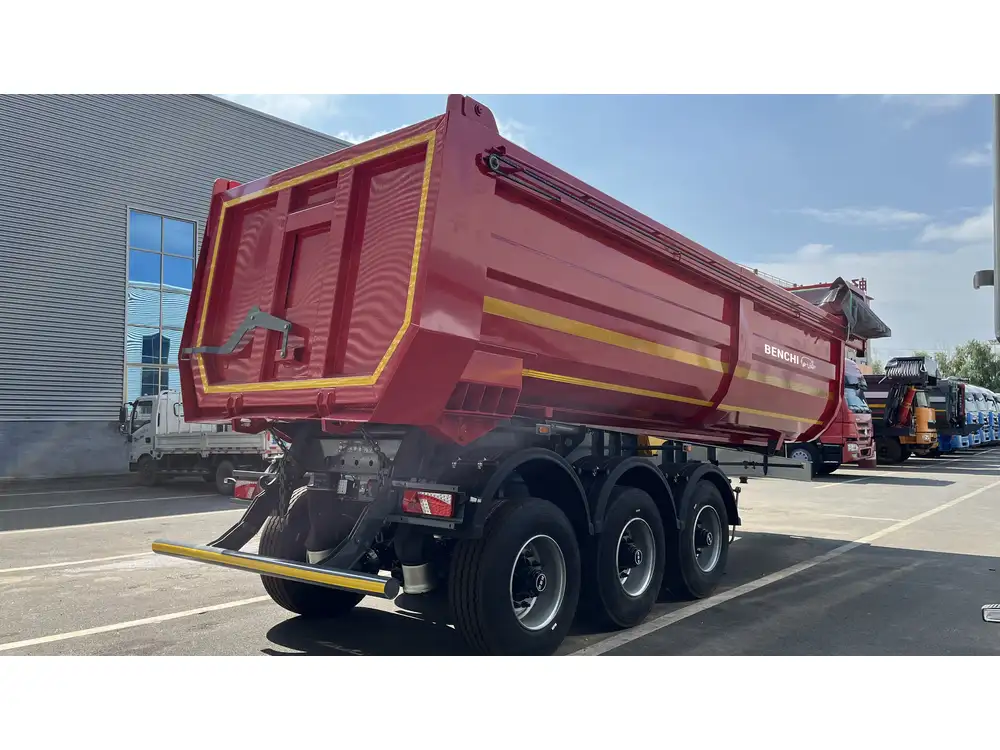Maintaining the operational efficiency of semi-trailers extends beyond the surface level of external inspections and tire rotations. A crucial yet frequently overlooked maintenance task is the drainage of air tanks. Understanding air tank maintenance can drastically influence the longevity of the trailer and optimize its performance. This article delves into the intricacies of air tank care, including recommended drainage frequencies, procedures, and the ramifications of neglect, aiming to illuminate best practices that enhance your operational reliability.
Understanding Trailer Air Tanks and Their Importance
Trailer air tanks serve a pivotal role in a semi-trailer’s pneumatic brake system. These tanks store compressed air necessary for the actuation of trailer brakes, ensuring responsiveness and safety during transport. Over time, moisture accumulates in these tanks, a result of environmental factors and the inherent condensation formed during the air compression and release cycles. If this moisture is not adequately addressed, it can lead to corrosion, freezing first in cold weather, and detrimental system failure.
Why Moisture in Air Tanks is Problematic
Corrosion Risks:
- Moisture accumulation can result in rust, turning the interior of the air tanks into a breeding ground for corrosion.
- Corroded tanks can fail, leading to unsafe operational conditions.
System Efficiency:
- Air tanks filled with moisture will decrease braking efficiency, compromising performance.
- This inefficiency leads to longer stopping distances and increased wear on brake components.
Freezing Problems:
- In cold climates, accumulated moisture can freeze, obstructing airlines and causing brake system malfunctions.
- The risk of ice formation is particularly pronounced in regions that experience substantial temperature fluctuations.

How Often Should You Drain Trailer Air Tanks?
Recommended Frequency for Drainage
The consensus among experienced mechanics and manufacturers points to a daily drainage recommendation, especially before the first trip of the day. However, several factors may influence this guideline:
| Factors Affecting Drainage Frequency | Recommendations |
|---|---|
| Climate | More frequent (daily in humid conditions; every few days in arid climates) |
| Usage Patterns | Daily use requires daily drainage; infrequent use may necessitate checking the tanks each time before use |
| Type of Load | Heavier or more dynamic loads can generate additional moisture; inspect accordingly |
| Seasonal Changes | Increased moisture is common in spring and autumn due to temperature fluctuations; check more frequently during these months |
Telltale Signs That Indicate Drainage
Even if daily drainage is recommended, certain indicators can prompt more immediate action, allowing for proactive maintenance rather than reactive repairs:
- Visible Moisture: Moisture or water droplets observed in air lines.
- Brake Performance Issues: A noticeable lag in braking efficiency or responsiveness.
- Condensation on Air Lines: This visual cue indicates excessive moisture likely trapped in the air tanks.
- Change in Sound: Unusual sounds during air release can denote issues with moisture buildup.

Proper Drainage Procedures
Steps to Drain Air Tanks Effectively
Maintaining an organized and systematic approach to draining your trailer air tanks can ensure optimal performance and longevity:
Preparation:
- Park the trailer on a stable, flat surface. Engage the parking brakes and disconnect the tractor if applicable.
- Gather necessary tools: a suitable catch container, gloves, and a wrench if the drain valves require it.
Locate the Drain Valves:
- Air tanks generally feature drain valves located at their bottoms. Familiarize yourself with your trailer’s manual to locate these valves accurately.
Drain the Tanks:
- Open the drain valves carefully, allowing moisture and compressed air to escape into the catch container.
- Use a wrench if necessary to loosen the valve, but do not force it.
Monitor for Water:
- Observe the expelled fluid. Initially, you may see air and then water. Continue draining until the water ceases to flow.
- Close the drain valves securely once draining is complete to prevent leaks during operation.
Final Inspection:
- Inspect the area around the drain valves for any corrosion or unusual wear.
- Document the drainage for your maintenance records.
Consequences of Neglecting Drainage
Ignoring the necessary routine of draining air tanks can lead to several costly and dangerous consequences.

Potential Problems
- Brake Failure: The most critical consequence is the potential for brake failure, which poses serious safety hazards. Poor brake performance can lead to accidents, injuries, or fatalities.
- Increased Maintenance Costs: Long-term neglect results in repairs that far exceed the routine task of drainage, such as full tank replacements or complete brake system overhauls.
- Downtime: System failures not only incur repair costs but can halt operations, leading to lost revenue and customer dissatisfaction.
- Sale Value Diminution: A trailer that shows signs of poor maintenance can experience decreased resale value. Proper maintenance logs that show routine drainage can uphold value.
Additional Maintenance Tips for Air Tanks
Comprehensive Care Beyond Draining
Monitor System Pressure:
- Regularly check the air pressure gauge to ensure systematic pressure maintenance, as both over and under-pressuring can lead to malfunctioning systems.
Inspect Air Lines and Hoses:
- Look for signs of wear, cracks, or leaks. Replacing compromised air lines prevents issues before they arise.
Replace Filters:
- Regularly changing the air dryer and filters mitigates moisture intake into the system, helping maintain cleaner air in the tanks.
Overall Trailer Maintenance:
- Routine checks of the entire braking system, wheel components, and other vital systems ensure that all parts work synergistically and promote overall functionality.

Seasonal Considerations
Adapting the drainage schedule according to seasonal shifts is prudent. Cold weather often necessitates increased vigilance due to frost and ice, while warm, humid conditions can accelerate water buildup.
Conclusion
The importance of regular draining of your trailer air tanks cannot be overstated. A well-established maintenance routine not only enhances safety but stands as a bulwark against unexpected repairs and operational inefficiencies. A simple habit of daily drainage, alongside careful monitoring practices, can dramatically extend the life of your air tanks and the effectiveness of your braking system. Take the time to invest in proper maintenance—it pays dividends not just in performance, but in peace of mind on the road.
By adhering to these guidelines and fostering a proactive maintenance culture, trailer owners can ensure their rigs remain safe, compliant, and optimal for the demands of transportation.



